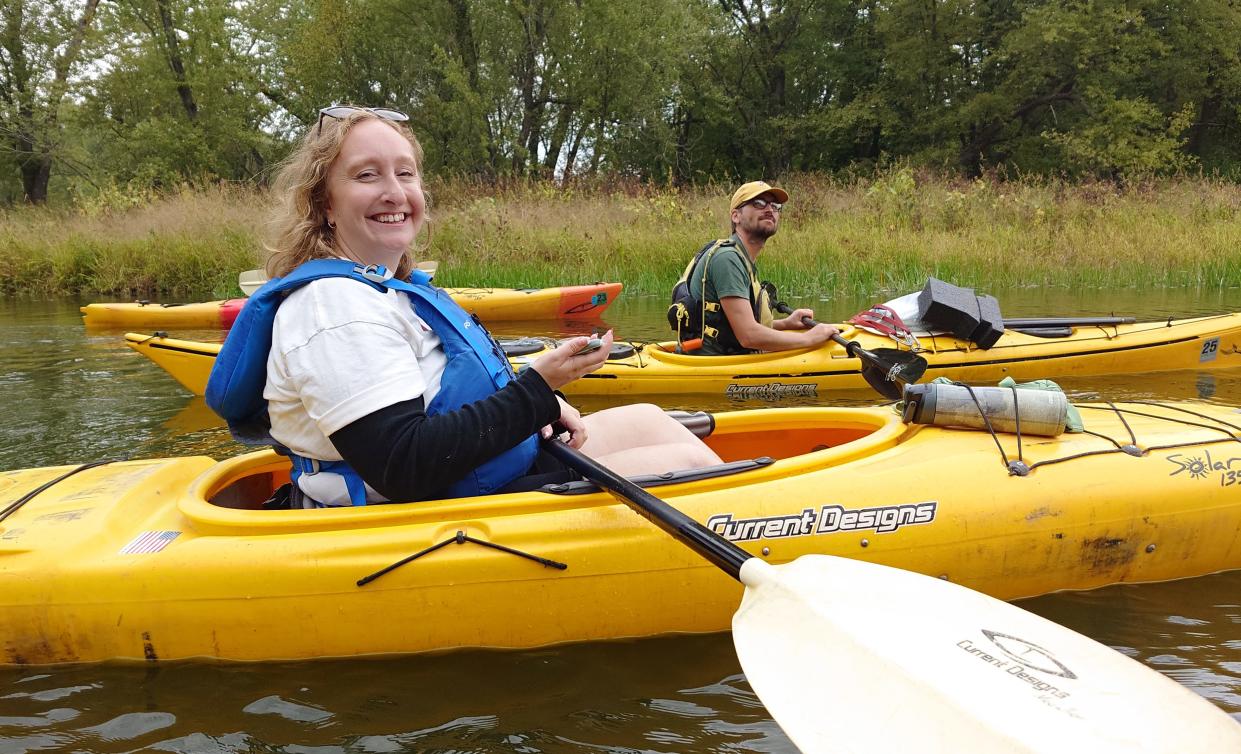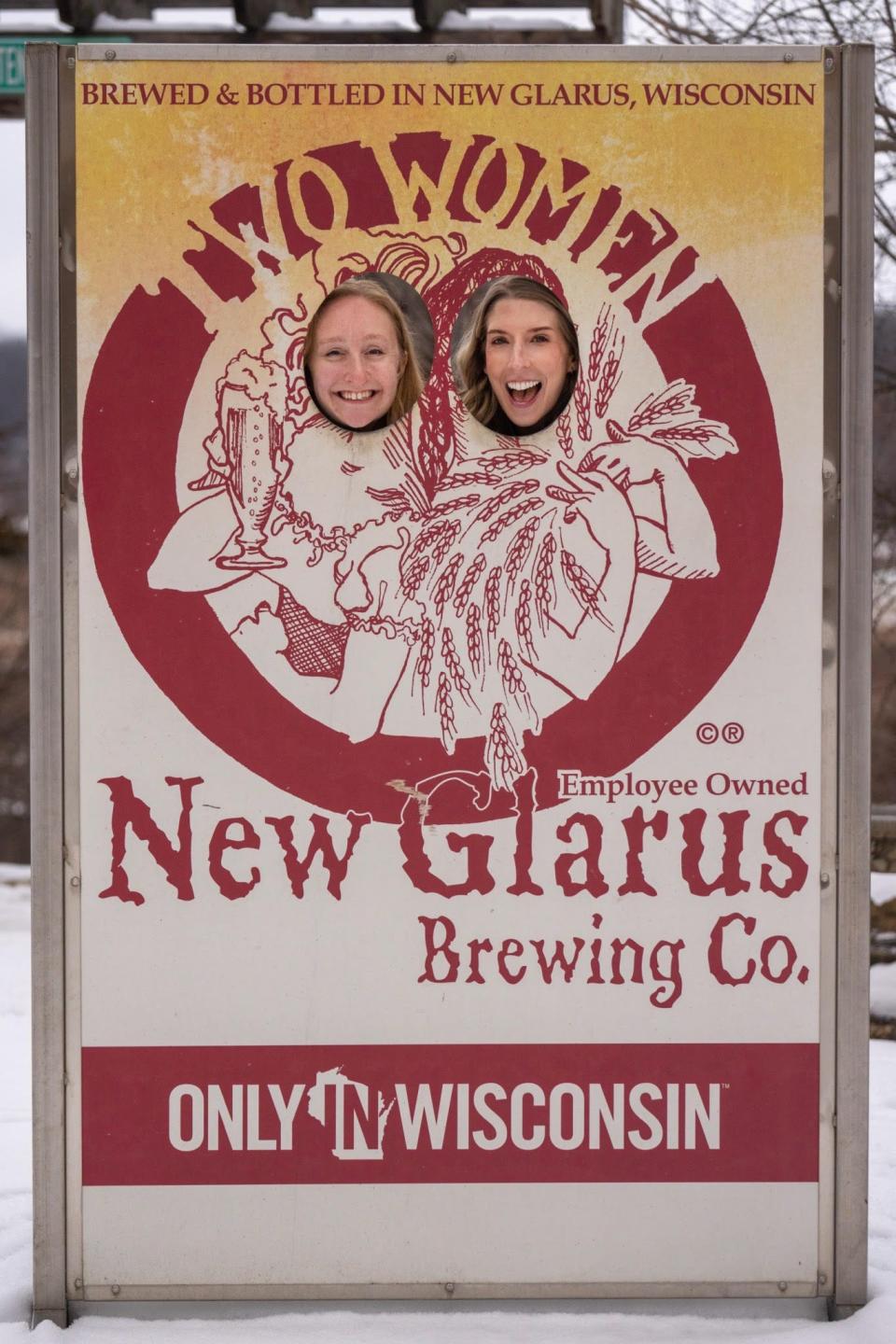Your donations helped put focus on Mississippi River basin. Send me your coverage ideas.

This year, I got the chance to experience the Mississippi River in a new way. I kayaked on it, with the help of two outstanding guides from Broken Paddle Guiding Co. based in Wabasha, Minnesota.
And I'll let you in on a little secret: I was scared.
In a recent story, I wrote about why people don't feel more connected to the Mississippi River. For some people, it's fear. After all, the river is a water superhighway for barges and tows carrying millions of tons of goods.
I didn't think any of that fazed me. That is, until I was paddling frantically across the river's shipping channel, hoping I could keep up with my fellow kayakers and make it to the other side of an island, which would ultimately shelter us from the wind.
But as I relaxed, I realized that I was experiencing the river in a more intimate way — and it was incredible.
Stories focused on river's challenges, folks helping
I've been covering the Mississippi River basin for the Milwaukee Journal Sentinel as a Report for America corps member for the past 18 months. In that time, I've had many experiences like the kayak trip that taught me something important about the river ecosystem, including slipping and sliding over icy backwaters near Alma to learn how climate change is affecting fish; wading through chest-high invasive grass in De Soto that's taken the place of floodplain forests; and talking with French Island residents as they cleared debris swept into their backyards by near-record spring floodwaters.
Support local journalism: Make a tax-deductible donation to help maintain this essential reporting
The most gratifying part has been bringing it all to readers — those who live near the river and want to see environmental issues highlighted and solved, as well as those who live elsewhere, and are curious to learn more about one of Wisconsin's most important waterways:
The Mississippi River's floodplain forests are dying. The race is on to bring them back.
In this western Wisconsin river, scientists see hope for saving endangered mussel species
Complementing coverage of the river, I also wrote about agriculture, air quality and water quality:
'This is on our doorstep now': Wildfire smoke a reminder that climate change impacts human health
'Once in a lifetime' federal money is coming to Wisconsin's farm conservation programs
And I contributed to a series examining how tribes across the Great Lakes are leading the way in addressing some of the most pressing environmental problems of our time.
Partnerships make environmental reporting possible
I didn't tackle this year alone. As part of the Mississippi River Basin Ag & Water Desk, a reporting network that covers agriculture and water issues throughout the river basin, journalists from Minneapolis, Iowa, Memphis and elsewhere wrote stories that transcended state lines about the thing that connects us: the river, including:
Mississippi River lock-and-dam system is outdated and in disrepair. What if it fails?
As heavy, wet snow melts, upper Mississippi River floods to near record levels

I also worked closely with Caitlin Looby, who covers the Great Lakes for the Journal Sentinel and is also a Report for America corps member. Together, we wrote about how road salt is polluting Lake Michigan and the Mississippi, how climate change might affect craft breweries and how a U.S. Supreme Court decision earlier this year will impact Wisconsin's wetlands.
Your donations, ideas will fuel my coverage next year
Next year, I plan to write more about water quality, sustainable agriculture and the health of the Mississippi River ecosystem, including stories about how nutrient pollution gets to the Gulf of Mexico, the growing problem of nitrate in our groundwater, the changing face of Wisconsin farming and how climate change continues to affect the river.
But I can't do it without your help.
Keep these stories coming: Make a tax-deductible donation
My newsroom and Report for America each pay a share of the cost of my salary. The newsroom is required to raise funds for the final portion of the salary to help make the position sustainable. In addition to my reporting, I volunteer weekly with a local youth media literacy organization.
At the Milwaukee Journal Sentinel, I'm one of three Report for America corps members, alongside my aforementioned colleague Caitlin, our Great Lakes reporter, and Cleo Krejci, who covers workforce development and career pathways. At our sister newspapers, Madison Lammert covers Wisconsin's child care industry and early childhood education for the Appleton Post Crescent, and Danielle DuClos is the K-12 education reporter for the Green Bay Press-Gazette. Three reporters at the Journal Sentinel, Jessica Rodriguez, Sarah Volpenhein and Frank Vaisvilas, served as corps members in Wisconsin and have been promoted to permanent newsroom positions.
I welcome suggestions on what I should write about. You can take a short survey online if you'd like to weigh in.
And above all, thank you for reading.
Madeline Heim is a Report for America corps reporter who writes about environmental issues in the Mississippi River watershed and across Wisconsin. Contact her at (920) 996-7266 or mheim@gannett.com.
Please consider supporting journalism that informs our democracy with a tax-deductible gift to this reporting effort at jsonline.com/RFA or by check made out to The GroundTruth Project with subject line Report for America Milwaukee Journal Sentinel Campaign. Address: The GroundTruth Project, Lockbox Services, 9450 SW Gemini Dr, PMB 46837, Beaverton, Oregon 97008-7105.
This article originally appeared on Milwaukee Journal Sentinel: Local reporting on Mississippi River relies on reader donations

